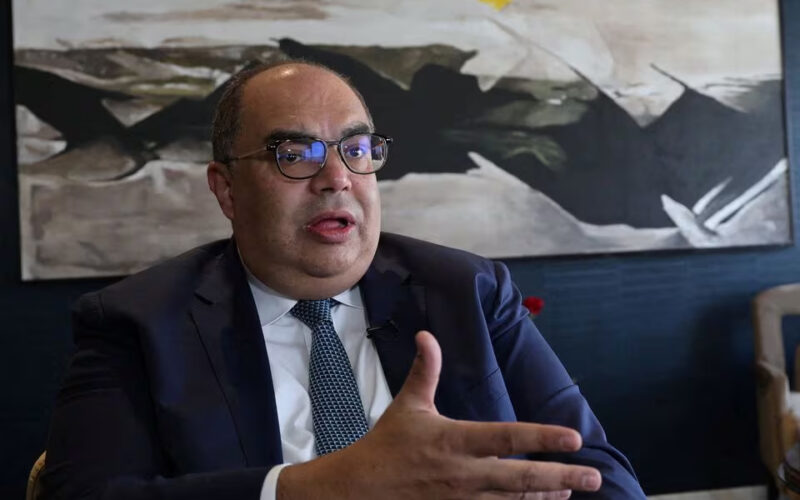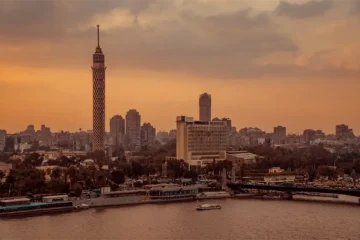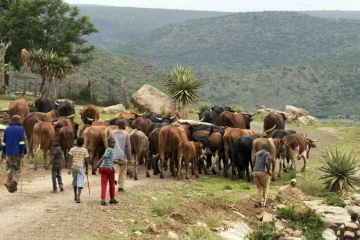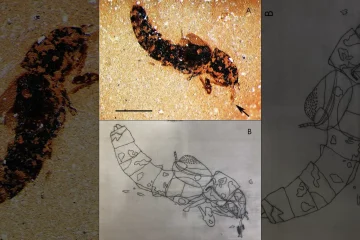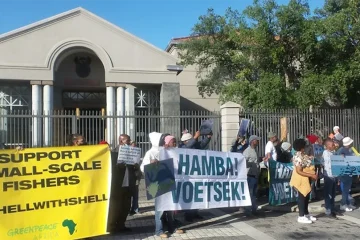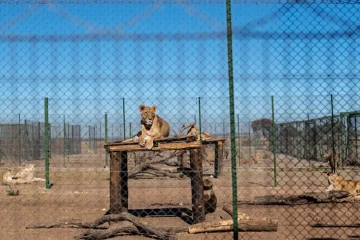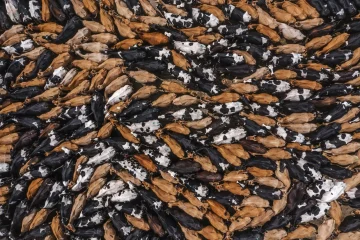A financing scheme that draws on funding from Western donors to help developing countries shift to cleaner power generation could be mirrored for heavy industries and other hard-to-abate sectors, Egypt’s climate champion said.
Extending a Just Energy Transition Partnership (JETP) structure to sectors including steel, aluminium, cement and fertilisers made sense because of new European Union rules that would otherwise penalise developing world exporters, U.N. Climate Change High-Level Champion Mahmoud Mohieldin said in an interview.
The rules, under the EU’s Carbon Border Adjustment Mechanism (CBAM), would have “serious implications” for countries exporting to Europe, said Mohieldin.
“I’m checking countries including mine, and we see the significance of those four sectors including fertilisers during the last couple of years, they constitute a very significant share of trade of exports actually to the EU.”
CBAM is the world’s first system for CO2 emissions tariffs and would be imposed from 2026 on imported iron and steel, aluminium, cement, electricity, fertilisers and hydrogen, in an effort to encourage greener production worldwide.
JETP deals support energy transitions in countries including South Africa and Indonesia with funding made up of equity investments, grants and concessionary loans from the Group of Seven (G7) wealthy Western nations, multilateral banks and private lenders.
The progress of JETP programmes and how to mobilise more climate finance will be a focus of the COP28 U.N. climate change summit in Dubai beginning on November 30.
Germany and Chile plan to launch a club at COP28 to help developing nations invest in decarbonising steel, cement and other industries.
Mohieldin said exporters to the EU in hard-to-abate sectors could try to fight CBAM through the World Trade Organization, use carbon markets, or negotiate exemptions, but in the meantime, there was a chance to use investment and technology to decarbonise.
CATALYTIC FUNDING
“The encouraging part is that these sectors are resourceful, they can really partner with the JETP, so they have already their funds,” he said, citing the cement industry in Egypt as an example where “catalytic funding” could accelerate decarbonisation.
“I know that Egypt is looking at this. I know that many African countries are looking at this,” said Mohieldin, who was appointed after Egypt was nominated to host the 2022 U.N. climate change summit in Sharm el-Sheikh.
A breakthrough at last year’s summit was an agreement to create a fund to help poor countries hit by climate disasters, after years of resistance by wealthy nations. Recommendations for the “loss and damage” fund, including that it be hosted by the World Bank, will be put to governments at COP28.
Despite continuing tensions between likely contributors and beneficiaries of the fund, Mohieldin said he expected it could be up and running “months if not weeks” after the summit, with pledges of $500 million as start-up capital.
“It’s not an ambitious target, but it’s a realistic target,” Mohieldin said, citing an estimate that the cost of loss and damage already exceeds $150 billion annually.
Developing countries have proposed the fund unlocks at least $100 billion by 2030. European and U.S. officials have declined to say how much they will put in the fund, with some developed countries pushing for financing from a variety of sources including potential taxes on sectors like shipping or aviation.
Focusing on the cost of such last resort loss and damage funding could push people “back up the chain” to address past failures to adapt to climate change and mitigate greenhouse gas emissions, Mohieldin said.
“If we started to get the figures right on the loss and damage, in the reverse order people will pay more attention to adaptation, and if they realise more what they are spending on adaptation, they will be doing better on mitigation.”

